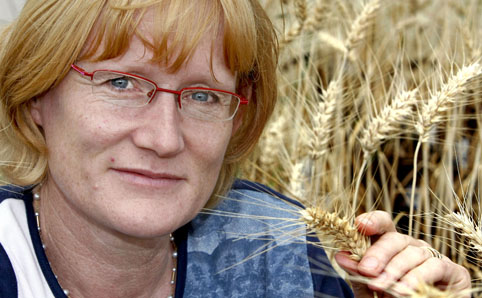Latest News Archive
Please select Category, Year, and then Month to display items
12 January 2024
|
Story Nonsindiswe Qwabe
|
Photo Sonia Small
 Since joining the UFS in 2008, Dr Grey Magaiza has worked extensively on approaches that can foster the socio-economic transformation of societies.
Since joining the UFS in 2008, Dr Grey Magaiza has worked extensively on approaches that can foster the socio-economic transformation of societies.
“The future should be one where communities can decide on their development agenda and futures. That’s the most important for me.” Dr Grey Magaiza, Deputy Director of the Centre for Gender and Africa Studies (CGAS) and Head of the Community Development programme on the Qwaqwa Campus, is passionate about capacitating communities to be agents of change and advancement. His vision for the future emphasises the empowerment of communities to take charge of their development by actively participating in decision making and the implementation of development projects that can improve their lives.
Since joining the UFS in 2008, Dr Magaiza has worked extensively on approaches that can foster the socio-economic transformation of societies. Over the years, he has crafted his research speciality into one that he is most proud of – being an interdisciplinary scientist immersed in the development of communities.
“I’m in a fortunate position of researching what I like. I say ‘fortunate’, because I’ve taken the time to understand what I’m passionate about, which is the overall field of rural livelihoods and livelihood futures – in short, community development. My research starts from an engaged university, understanding the elements that a university must use to enhance transformation and relevance to its immediate community in terms of development.”
One of the ways he has done this is by looking at social entrepreneurship as a development approach for young people in a rural setting. Through workshops with non-profit and civic organisations in Qwaqwa, Dr Magaiza has been helping these organisations to map out their needs and actively meet them through the involvement and support of external role players.
“We understand that communities are part of the national development agenda, but even that national agenda respects community knowledge and intentions and allows communities to shape their identity. A critical enabler of this is community organising. You bring back the capacity in communities to have dialogues on issues affecting them as spaces for engagement, knowledge exchange, and for people to just talk about their way forward.”
By enabling communities to define their development agenda, they can address their specific needs, challenges, and aspirations, he said. “When I look at livelihood futures, it’s quite an exciting aspect of my work – it’s like looking into a fortune tellers’ globe, because you’re not deciding for communities what they should do, but the communities themselves take those decisions.”
African Union acknowledges one of our own
2012-01-23
 |
|
Prof. Maryke Labuschagne
Photo: Hannes Pieterse
|
The African Union awarded an international award to Maryke Labuschagne, a professor in Plant Breeding at our Faculty of Natural and Agricultural Sciences, for her contribution to science in Africa.
Prof. Labuschagne received the African Union Kwame Nkrumah Scientific award in the category Life Sciences – Continental level. This is the highest level of this prestigious award programme.
The African Union Commission is committed to ensure that science and technology contributes to sustainable development efforts. In 2008 the African Union Commission launched the prestigious African Union Scientific Award Programme. This programme was later renamed the African Union Kwame Nkrumah Scientific awards.
The programme is implemented at National level for young researchers, Regional level for women scientists and is open to all scientists on Continental level.
The Continental level is the highest level of the programme. The objective is to give out scientific awards to top African scientists for their scientific achievements, valuable discoveries and findings.
Prof. Labuschagne has been part of our university for the past 23 years. Over the last 20 years she has been involved in training and educating scientists in plant breeding all over Africa. Her work also entails the development of better cultivars to ensure food sustainability on the continent.
“I really did not expect to win this award. The criteria were really strict and one always sells yourself and your achievements short,” says Prof. Labuschagne.
With this award, Prof. Labuschagne also receives US $100 000 (about R 804 180) in prize money, which will be used to renovate her department’s lab facilities and provide bursaries.
The official award ceremony will be held on Saturday 28 January 2012 at the United Nations Conference Centre in Addis Ababa, Ethiopia.